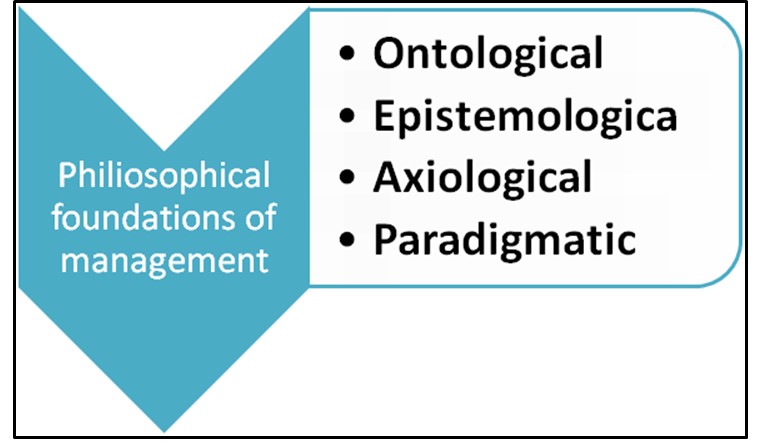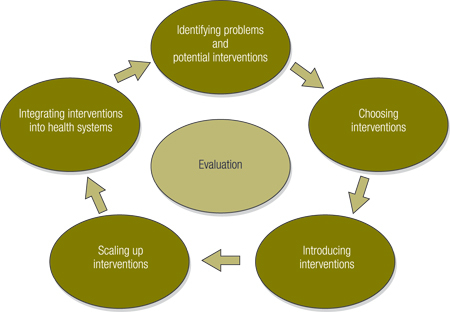Assignment Sample BU7002 Management Research Methods
Introduction
The research method is the way in which research on a particular topic is to be conducted. The methods of research on different topics are different and vary in various projects.
Research methods not only make it easy to go through the procedures of research but also make the outcomes more perfect.
Philosophical assumptions of management research

Figure 1: Philosophical foundations of management
(Source: Created by author)
1. Ontological Foundation
Ontology is nothing but business-related studies that can be described as “the study or science of being” also it offers the character of reality. The ontology is a method of perception that displays an interpretation through a person approximately that constitutes a real fact.
In different words, ontology is related to an imperative query of whether or not social entities ought to be perceived as subjective or objective.
Firstly, objectivism “is an ontological role that announces the social phenomena as well as their meanings which have an existence which is unbiased of social actors” (Blokland & Reniers, 2019).http://BU7002 Management Research Methods
Subjectivism (additionally referred to as interpretivism or constructionism) on the contrary, gives an idea that social phenomena are produced from the consequent and perceptions movements of these social actors involved in their life.
2. Epistemological Foundation
By spotting the epistemological presuppositions, the researchers can also manipulate their approaches to research, boost the validity of their outcomes and make it certain that the information they produce is cumulative. As per Packard & Bylund (2019),
this assists the researcher to conduct this epistemological reflection, by presenting the equipment that is required to provide answers to the subsequent questions: How is information generated?
What is the character of the produced information? What is the status and value of this information? While answering these questions, concepts, and inspiration can be drawn from the most important epistemological paradigms generally recognized with organizational technology: the interpretivism, the constructivist, and the positivist paradigms.
3. Axiological Foundation
Axiology is a department of philosophy that goes through the judgments regarding value. Specifically, it is engaged with the evaluation of the function of the researcher’s value on all levels of the processes of research.
As per Moczydłowska (2017), axiology usually refers to the ‘objectives’ of the research. This department of the research philosophy tries to make clear if anyone is attempting to provide an explanation for or is expecting the world, or simply looking for it in order to apprehend it.
In easy terms, axiology specializes in what everybody values in their studies. This is essential due to the fact that the value of all has an effect on the way they proceed with their research, also what they value in their findings of the research. All about axiology is described here along with the most important research highlights and philosophies related to the techniques of fact collection.
4. Paradigmatic Foundation
As a paradigm of research, pragmatism is primarily based totally on the proposition that the researchers need to use, the methodological and/or philosophical technique that works satisfactorily for the precise study difficulties that are being investigated.
From this, the researchers can examine the logical and scientific validity of their comments and statements as well as reflect on the legitimacy and epistemological validity of their work (Jakobsen et al. 2019). http://BU7002 Management Research Methods
The consideration of those questions can assist the researchers to describe their very own positions in terms of the epistemological pluralism that can be found in organizational technology elaborately.
Evaluation of research methods
1. Descriptive research design
A design of the research is a detailed course of action for the purpose of research. A researcher trying to resolve the study hassles ought to always put together a plan so one can assist him to achieve his final motto. This plan is a study layout or research design.
It is nothing but a plan that defines the research hassles, identifies the information needed, and comes to a decision on the device of collection of data, sort of examination, etc.
A right design is often characterized with the aid of using capabilities like appropriateness, flexibility, affordability and so on (Sahin & Mete, 2021).http://BU7002 Management Research Methods
Usually, the design that minimizes, maximizes, and biases the reliability of the facts gathered and analyzed is taken into consideration as a great design. The design that provides the smallest errors in the experiment is meant to be an excellent design in lots of investigations.
2. Secondary data collection method
Secondary information is facts that can be taken from the works of research already carried out by someone and also used for the cause collection of the research facts.
According to Garcia & Mayorga (2018), the purpose of secondary information is being more and more utilized in research is that posted facts are actually available protecting numerous fields in order that an investigator unearths the required facts that are easily available to him in lots of cases.
For sure studies like the behavior of stock price, exchange and interest rate scenario, etc. most effectively secondary facts are used.
All works of research are primarily based totally on a sure imaginative and prescient of the world, use a methodology, and also propose effects aimed toward prescribing, predicting, explaining, or understanding.
Design that yields maximal data and presents a possibility for thinking about many exceptional factors of trouble is taken into consideration as the most suitable and efficient design in admiration of a lot of research problems.
A design can be pretty appropriate in a single case, however, can be discovered trying in single respect or the alternative in the context of a few different research hassle.
3. Positivism philosophical approach
As in philosophy, positivism sticks to the perspective that only “factual” information received through observation (the senses), consisting of measurement, is worthy of trust.
In positivist research, the function of the researcher is restrained to the information collection and its interpretation in a way that is objective. In these sorts of research, study findings are generally quantifiable and observable.
As per Burton-Jones & Lee (2017), positivism relies upon quantifiable observations which result in statistical analyses.
It is a plan that is tentative and undergoes many adjustments as the study of research progresses. It provides a chain of manual posts to allow the researcher to proceed in the proper direction.
This branch of the studies philosophy attempts to make clear if every person is trying to offer a reason behind or are looking ahead to the world, or definitely seeking out it so as to understand it.
In clean terms, axiology makes a specialty that everybody values in their studies. This is crucial because of the reality that the fee of all has an impact on the manner they continue their studies, additionally, what they feel about their findings of studies.
Conclusion
It can be concluded that it is important to consider research assumptions and assess appropriate designs and methods to complete the research successfully and evaluate the necessary outcomes that are authentic.
This project gives a clear concise picture of how management research is to be conducted, and which methods and designs should be followed to get the exact observations and results.
Reference list
Blokland, P., & Reniers, G. (2019). An ontological and semantic foundation for safety and security science. Sustainability, 11(21), 6024. Retrieved on: 2nd August 2021, retrieved from: file:///C:/Users/Lenovo/Downloads/sustainability-11-06024.pdf
Burton-Jones, A., & Lee, A. S. (2017). Thinking about measures and measurement in positivist research: A proposal for refocusing on fundamentals. Information systems research, 28(3), 451-467. Retrieved on: 2nd August, 2021, retrieved from: https://espace.library.uq.edu.au/data/UQ_649105/ABJ_AL_2017_Preprint.pdf?dsi_version=82d038c19890783720aa7f3051b60cf0&Expires=1627902558&Key-Pair-Id=APKAJKNBJ4MJBJNC6NLQ&Signature=UzugORdgQjOjLU~bV9pa-g72WbGhk6KeJmCmOf-2Zdb3RLXTtDRUqr0vHmJ7OGKq1PrvUBQD4S7lcW4gTkQSnZBXHshSt3zRynlfHaW9eq01yOx0MF1yBqnzAi4R06yEqxL~h~2FvVc6-WdpQWUqqBkYzl5elbRdWC4LE4crvQJqLvhkds8yKr74f6zzp1HYIR8injbNfLT1ULmk-30fuihwRnFBj3qRrLxrhHNv6d-~yYdkaPe0N7OG-ZNtn22JOhe4Js-M-AlrxRsANvKWFC0uHct18i4bIqlJB7sEe~zgmdKC-aHgM~eyzfuB50do2yQ5KLDYIc4eC0sEgIS1UA__
Garcia, N. M., & Mayorga, O. J. (2018). The threat of unexamined secondary data: A critical race transformative convergent mixed methods. Race Ethnicity and Education, 21(2), 231-252. Retrieved on: 2nd August, 2021, retrieved from: https://d1wqtxts1xzle7.cloudfront.net/54682457/The_threat_of_unexamined_secondary_data_a_critical_race_transformative_convergent_mixed_methods-with-cover-page-v2.pdf?Expires=1627908033&Signature=RCjButeS2Y6LFs6u~pHTWN5l38yxiBLeKRYpgffqOHn3FiaBoWAHANKvPl90lNPCVcFyLd-2WqWEJMWcDAt2VlyGWPWfGxIa0-GsVwTK00BwPtWl1Eu1EHXw~gHdrziT1RTP1gkw~UnkKIuHAFNBB5tFF-W1WnH9LF4CinWfdFaZJikCoNQsfl4LXoF9JvGoNlZ6eoMOpebKU5Rx2QaohdQsNJtNXq8kNpAsUOv329dXEI-s0P2kDkNA8DeNYzZL6kn5ZLSJ3whqSK2sYkT0BKOIbBwEf9LR2zQoy6c~V1kFPyI7jrxPCayAzIIXCe4hKMP5zOkM5rUK1uQXQIOf-g__&Key-Pair-Id=APKAJLOHF5GGSLRBV4ZA
Jakobsen, M., Mitchell, F., Nørreklit, H., & Trenca, M. (2019). Educating management accountants as business partners: Pragmatic constructivism as an alternative pedagogical paradigm for teaching management accounting at master’s level. Qualitative Research in Accounting & Management. Retrieved on: 2nd August, 2021, retrieved from: https://www.emerald.com/insight/content/doi/10.1108/QRAM-10-2017-0099/full/html
Moczydłowska, J. M. (2017). Justice as an axiological criterion in the evaluation of the compensation system. Zeszyty Naukowe Politechniki Poznańskiej. Organizacja i Zarządzanie. Retrieved on: 2nd August, 2021, retrieved from: http://yadda.icm.edu.pl/yadda/element/bwmeta1.element.baztech-2ec2808e-495a-4caa-a1b5-a7fae4514c03
Packard, M. D., & Bylund, P. L. (2019, July). Truth and Knowledge in Management: Toward a Modern Rationalist Approach. In Academy of Management Proceedings (Vol. 2019, No. 1, p. 15606). Briarcliff Manor, NY 10510: Academy of Management. Retrieved on: 2nd August, 2021, retrieved from: https://journals.aom.org/doi/abs/10.5465/AMBPP.2019.15606abstract
Sahin, S., & Mete, J. (2021). A Brief Study on Descriptive Research:: Its Nature and Application in Social Science. International Journal of Research and Analysis in Humanities, 1(1), 11-11. Retrieved on: 2nd August 2021, retrieved from file:///C:/Users/Lenovo/Downloads/3_Sagufta+Sahi



Your article gave me a lot of inspiration, I hope you can explain your point of view in more detail, because I have some doubts, thank you.
I don’t think the title of your article matches the content lol. Just kidding, mainly because I had some doubts after reading the article. https://www.binance.info/join?ref=V2H9AFPY